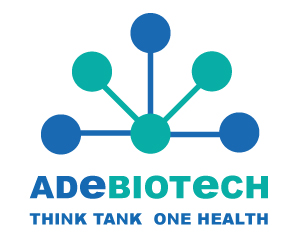
Speakers
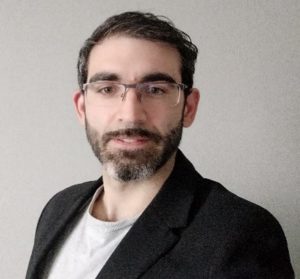
After an agronomy engineering school (INP-ENSAT, Toulouse), Clément AURIOL specialized in white biotechnology by earning a Ph.D. in microbiology and industrial biocatalysis from INSA Toulouse by working at Metabolic Explorer (CIFRE grant).
Between 2009 and 2016, Clément held different postdoctoral positions in INSA-Toulouse and TWB, always linked with industrial partners.
Since 2016, Clément is a R&D Manager within CINABio, the biotech laboratory of Adisseo, where he is in charge of developing new biotech process, especially for amino acid production.
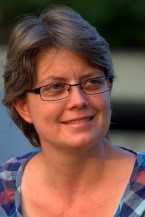
After a European PhD on the humanization of the N-glycosylation of recombinant monoclonal antibodies produced in transgenic plants, Dr Muriel Bardor spent two years as a post-doctoral research fellow at the University of California San Diego, USA. There, she worked on the sialic acid biology in mammalian cells in Pr Ajit Varki’s glycobiology lab. In 2003, she has been appointed as an Associate professor at the University of Rouen in plant glycobiology. She performed a two years oversea period working from 2010 to 2012 as the Head of the Bioprocessing Technology Institute Analytics group in Singapore where she developed analytical methodologies to characterize finely biopharmaceuticals produced in Chinese Hamster Ovary Cells. She is currently professor at the University of Rouen Normandie, Glyco-MEV laboratory, Carnot I2C in charge of a research project dedicated to the understanding of the glycosylation pathways in microalgae and demonstrated that microalgae could represent interesting alternative expression system for the production of biopharmaceuticals such as monoclonal antibodies.
Pr BARDOR Muriel has published more than 60 peer reviewed research articles, 24 chapters, reviews and others writings, 7 patents, given more than 30 invited talks and seminars and has developed a large network of national and international collaborations. She led national and international scientific projects (e.g. ANR KBBE, IUF, H2020…), coordinated research collaborative agreements with private institutions (MEDICAGO Inc., Agilent Technologies, SAMABRIVA…). Bonus awards for PhD supervision and excellence in science (PEDR) have been attributed to her since 2006. In 2014, she has been appointed as a junior member of the “Institut Universitaire de France” (IUF) thus reflecting the excellence of the science that she is leading.
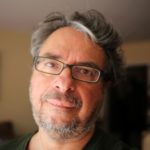
Sylvio Bengio manages the Scientific programs at Adebiotech, independent Biotechnology think tank. Sylvio holds a PhD in cellular and molecular bioology and has been active in industry through various management positions in Biotechnology and technology supply.
He is a member of the scientific/programming Committee of CFIB2022 Conference and is the main contact for questions related to the scientific agenda.
contact: sylvio.bengio@adebiotech.org
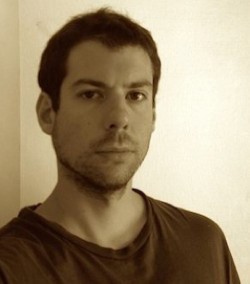
Biochemist with a PhD in Biotechnology from INA-PG/ AgroParisTech, Thanos Beopoulos worked for several years in the metabolic engineering of yeast and bacteria for the production of oleochemicals, pharmaceuticals and antibiotics. During these years he worked at the genetic engineering department of CNRS Paris-Grignon and at INRA, MICALIS. After a short period at MITs chemical engineering department, he worked with AAK Sweden on the microbial conversion of Shea processing side products to value added oleochemicals.
From 2016, he joined Bio-Modeling Systems as an integrative biologist where he develops predictive biological models and identifies potential treatments for untreated human pathologies such as (auto) immune, neurological, metabolic and cancer related diseases.
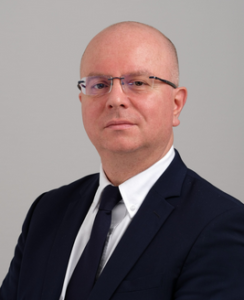
HTL is a French biotechnology company leader on Hyaluronic Acid (HA) production for medical use. Our products are used as a gold standard in various domains such as in aesthetic, rheumatology, or ophthalmology.
HTL develops a new generation of polysaccharide produced by fermentation to offer to the market, some additional solution to HA to improve people’s lives.
Heparosan, which is a polysaccharide precursor of all the heparin sulfate family molecules, does not show any anticoagulation effect and has the same sugar backbone as HA. Due to the nature of the bonds between the sugars, the molecule is not sensitive to hyaluronidases. HTL owns a technology that allows the development of a new strain and a process to synthesize and purify the polymer.
All the development is carried out in a pharmaceutical environment with a GMP production process as the main deliverable.
With a quality by design approach, we will review the different challenges to tackle to reach the industrial scale.
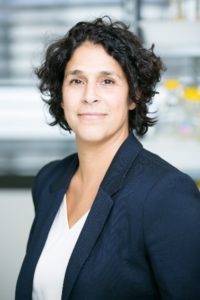
Fayza DABOUSSI is Scientific Director at TWB, a French public / private industrial biotechnology organization that transitions early stage R&D from academic labs into preindustrial development projects and start-ups. Fayza has 20+ years in research and development using genetic engineering to develop solutions in various fields from health to commodity chemicals. Her expertise stands in human cells as well as in microorganisms (yeasts, microalgae…). Prior to TWB, Fayza was VP Synthetic Biology and Technology at Cellectis SA, a clinical-stage biopharmaceutical company with 20 years of expertise in genome editing where she spent 6 years and Research Director at INRAE to develop synthetic biology in microalgae. Fayza also supports French initiative on biotherapeutics reduction costs through the Toulouse Industrial Biotechnology for Health (TIBH) integrator.
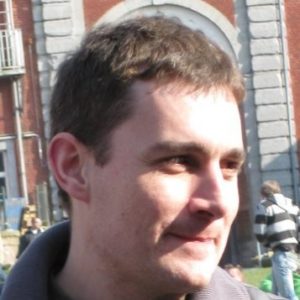
Frank Delvigne and his team are conducting researches on the characterization and control of the dynamics of microbial populations in engineered (i.e., bioprocess, synthetic co-culture) and non-engineered (i.e., biofilm) ecosystems. More precisely, they are looking at how microbial populations are able to display different phenotypic structures in function of environmental perturbations. On a more applied basis, the concept developed in the team have already led to methodologies allowing to control gene expression in continuous cultivation devices, keep a given phenotypic structure in scale-down reactor or prevent unwanted phenotypic events such as biofilm formation or sporulation.
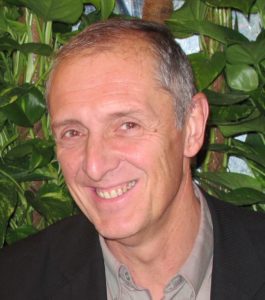
Biography
32 years experience in Pharma R&D
Head of Protein Science & Technology and Deputy Head Biologics Research Vitry,Sanofi
Between 2012 and 2014 global Head of Protein Biotherapeutics. Previously Head of Protein Production during 12 years in Aventis and Sanofi-Aventis (2000 –2012). Group Leader in Biotechnology, Hoechst Marion Roussel, 1988 –2000, (12 years). PhD in 1988 in Cellular and Molecular Biology (University Paris VI, France): Purification, biochemical and immunological characterization of human teeth collagenase, in Protein Chemistry Lab Institut Pasteur of Paris.
Main expertises in R&D on expression and purification/characterization/developability of recombinant proteins and antibodies, Biologics, for Medicinal Chemistry and Biotherapeutics projects for all kind of uses (screening, crystallography, IHC, PK-PD, in vitro and in vivo studies…). Purification of proteins, from mg scale to several grams (DSP). Support to Medicinal Chemistry projects, and development of purification processes for Biologics. Metalloproteinases. Previously project leader of Cardiovascular and Anti-Infective projects.
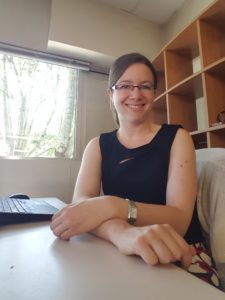
Lorie Hamelin, senior researcher at the Federal University of Toulouse, is a laureate of the French presidential climate call “Make our planet great again” (Project Cambioscop), and currently heads a research team of 2 postdocs and 5 PhDs. Her research lies at the crossroads of bioeconomy, circular economy & renewable energy systems, focusing on the environmental- and cost- performance of strategies to transit towards a low fossil carbon economy, at the national or regional scales. In other words, Dr. Hamelin strives to re-think how we supply food, energy and chemicals to the World, as well as how we manage waste. Life Cycle Assessment, Energy System Analysis and Geographical Information Systems are the key analytical tools she applies and develop in her research. Prior to her research in France, Dr. Hamelin worked as an assistant professor in the Centre for Life cycle Engineering at the University of Southern Denmark, and has been recruited in the framework of the European ERA Chair Programme to work as a senior scientist on bioeconomy research in Poland. She further founded her own consulting company (Hamelinlab) in France. Dr. Hamelin currently serves as an expert in the International Scientific Reference Group of the Swedish Biogas research Centre, co-lead a Sectorial Working Group (SWG) of the Ecosystem Services Partnership (ESP) network on circular bioeconomy and is member of the European Energy Research Alliance. Since 2010, Dr. Hamelin participated and served as a WP leader in 10 European bioeconomy-related projects.
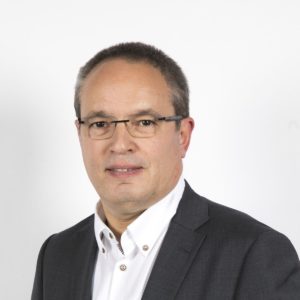
Guy Hélin has more than 30 years of experience as consultant for SME and large group (in Belgium, Luxemburg, France and Switzerland). He was involved in a biotech spin-off of the University of Brussels (ULB) and he has negotiated non-exclusive license agreement with large pharma companies including GSK and Merck/MSD. In 2013, he founded the startup Syngulon together with Dr Philippe Gabant. Syngulon is developing original genetic technologies using bacteriocin/immunity either to improve microbial fermentation, to avoid microbial contamination or as an alternative to antibiotics in the context of AMR.
Guy has a Master in Business Engineering from Solvay Brussels School (ULB) in Brussels.
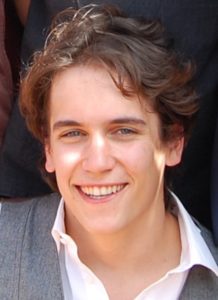
Egon Heuson is a full researcher at the Unité de Catalyse et Chimie du Solide (UCCS) in Centrale Lille (Lille, France). He first graduated a French double diploma including a master’s degree in organic, bioorganic and environmental chemistry from l’Université Clermont-Auvergne (Clermont-Ferrand, France) and an engineer diploma in biotechnologies from Polytech’Clermont in 2012. Then he obtained his PhD in 2015 in Chemical Biology – Biocatalysis at the ICCF (Institut de Chimie de Clermont-Ferrand). He’s PhD research topic was on the discovery of new transaminases for the chiral synthesis of valuable amines building block. This work led to several publications in high impact factor journals. After the end of his PhD, he was in charge, as a research engineer, of developing and conducting the projects of the high-throughput catalysts screening platform of the University of Lille, called REALCAT (www.realcat.fr, Lille, France), more specially in the field of biotechnologies. His mission included programming the platform’s robots and conducting the related scientific experiments, but also the management of the platform users. In 2021, he stopped working on the platform to pursue his own research activity on the development of new hybrid multi-catalytic materials (ie. catalysts that combine chemo- and biocatalysts on the same material in a “one-pot/one-step” process) for the efficient synthesis of renewable building blocks, and more specially bio-based polymers. To achieve this goal, he uses high-throughput screening strategies, combined to machine learning algorithm-based prediction, to find the best catalysts to combine for a dedicated chemical reaction. In this endeavour, it benefits greatly from the REALCAT platform on which he continues to develop new screening methodologies.
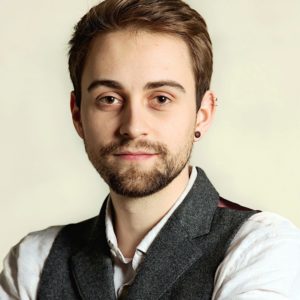
Je suis diplômé d’une licence de Biologie Moléculaire et Microbiologie et d’un master de Biologie Synthétique et Systémique / Bio-ingénierie. Je maîtrise les outils CRISPR-Cas9/13 et j’ai une expertise dans le design de systèmes biologiques artificiels.
Mon objectif est d’utiliser les outils et méthodes de la biologie synthétique pour concevoir des projets innovants et les traduire de la simple idée à l’application concrète.
Je suis passionné en particulier par les domaines des énergies renouvelables, de l’aménagement urbain et de l’exploration spatiale.
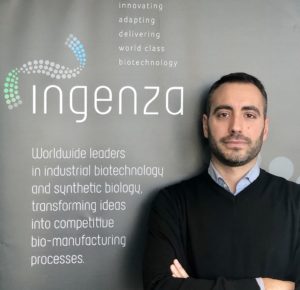
Leonardo Magneschi obtained a Ph.D. in Plant and Microbial Biotechnology from Scuola Superiore Sant’Anna, Pisa (Italy) in 2011. After his Ph.D. he moved to Muenster (Germany) where he was awarded an Alexander von Humboldt postdoctoral fellowship to investigate the molecular basis of abiotic stress responses and biofuel production in single cell algae (2011-2014). Leonardo left academia in 2014 and joined a two-year “TOTAL New Energies” industrial project in collaboration with the CEA Grenoble (France; 2014-2016), where he developed cutting edge molecular tools for metabolic engineering and genome editing of non-model photosynthetic microbes. Throughout his career at Ingenza Ltd, which started in 2016, Leonardo has been directly involved in the design and construction of strains for a number of commercial customer projects, ranging from pharma, biofuels and renewable materials, thus acquiring first-hand experience in genetic engineering of both prokaryotic and eukaryotic hosts. Leonardo has published 17 papers in international peer-reviewed scientific journals and was recently granted inventorship on two international patents. Two additional patents were submitted in 2020.
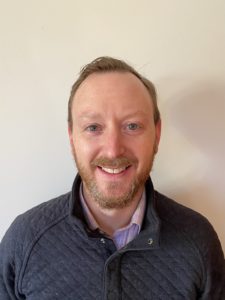
John McBride is Vice President of R&D at Mascoma LLC, a subsidiary of Lallemand Inc., leading the companies’ technology development for new products in the Brazilian ethanol production market, animal nutrition, and cellulosic ethanol production. John obtained his B.A. Mathematics and Biology from St. Olaf College in Northfield, Minnesota and his Ph.D. in Biochemical Engineering from the Thayer School of Engineering at Dartmouth College. His Ph.D. work focused on expressing cellulolytic enzymes in Saccharomyces cerevisiae. Since joining Mascoma in 2007, John’s work has included developing new types of biocatalysts for a variety of industrial processes. These have included the first engineered strain of yeast for Brazilian sugarcane-based fuel ethanol production called SucraMax®, which is now used in ~10% of Brazilian fuel ethanol mills, and several products for cellulosic ethanol—FiberFerm® and C5 Fuel®. John is an inventor on 8 granted patents, and >10 pending and unpublished patent applications, as well as 9 peer reviewed publications.
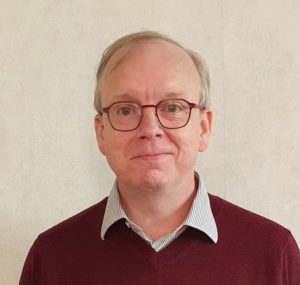
Michael O’Donohue works for INRAE, France’s National Institute for Research on Agriculture, Food and the Environment. He holds a PhD in protein biochemistry and extensive research experience in enzyme engineering and biotechnology. In INRAE, Michael is head of TRANSFORM, a 600-staff research division possessing 28 labs in France. Moreover, Michael leads IBISBA, a distributed European research infrastructure, currently involving research facilities located in 9 European countries.
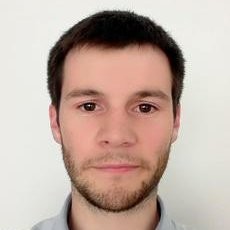
After a Master’s degree in structural biology at the Paul Sabatier University (Toulouse, France) in 2009, Mathieu Rocaboy pursued doctoral studies on the structural determinants of bacterial division at the University of Liege (2013). Post-doctoral experience includes a Welcome Trust funded position at the Biochemistry Department (University of Cambridge) working on a drug-design programme targeting cancer (2014-2015) and the study of flowering in the model organism A. thaliana at the Institute of Botany, University of Liege in 2015-2016.
Since 2016, Mathieu Rocaboy is holding a position of Project Leader and Scientific Advisor at Xpress Biologics with expertise on the development of expression strains (E. coli and P. pastoris), optimization and sizing of purification processes and development of analytical methods for process characterization.
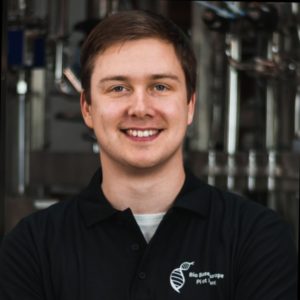
Dr. ir. Nico Snoeck is business development manager at BBEPP. He obtained his master’s degree in bioscience engineering in 2015 and holds a PhD in Biotechnology (2020) from Ghent University. During his doctoral research he developed new biosynthetic toolboxes for the engineering of Escherichia coli to fermentatively produce complex glycan structures. Since 2019, he has been with Bio Base Europe Pilot Plant as business development manager coordinating multiple bilateral projects in the fields of biomass pretreatment, fermentation, biocatalysis and green chemistry. He also supervises BBEPPs tasks within the H2020-BBI project Prolific and HEU project REPURPOSE.
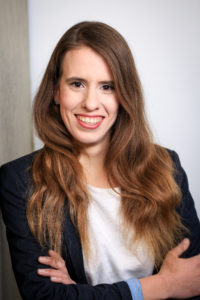
2013: Research stay at KTH Stockholm working on the topic of high cell density perfusion processes.
2014-2017: Doctoral thesis on the development of bioprocesses for production of CHO cell based cell-free protein synthesis systems at Technical University of Berlin.
2014-2019: Researcher and PostDoc at Fraunhofer Institute for Cell Therapy and Immunology working on the topic of eukaryotic cell-free protein synthesis systems, cell line and bioprocess development.
2019: Scientist in cell line and bioprocess development at Glycotope.
2021: Associated Director cell line and bioprocess development at FyoniBio.
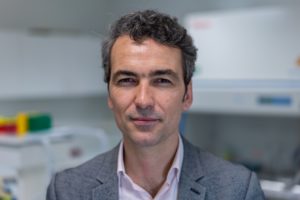
Simon Trancart is co-founder and CEO of Altar. He earned diplomas from Ecole Centrale Paris (France) and Escola Politécnica da Universidade de São Paulo (Brazil). Previously, Simon held different position at the sugar and bioenergies division of engineering group Fives. In 2013, Simon launched Heurisko, a biotech specialized in microbial fluidics. He co-founded Altar in 2017 that supports strain development in several industrial fields.
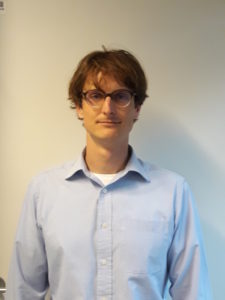
Moritz von Stosch is a scientist and entrepreneur with confirmed background in process system engineering , artificial intelligence and data science. He has extensive experience in cutting edge hybrid modeling methodds (that combine data-driven solutions with fundamental knowledge)
